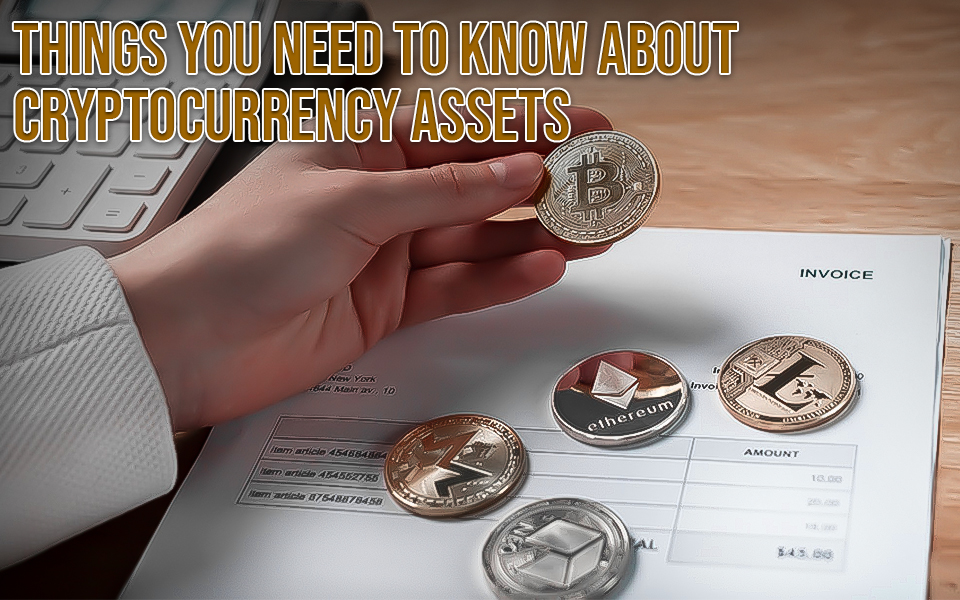


Cryptocurrency asset securities, also called digital assets, represent ownership in an underlying asset. These assets can be anything from real estate to commodities to stocks, and they are intended to provide investors with the same legal protections as traditional securities.
However, investing in crypto asset securities is not without risks. The Securities and Exchange Commission (SEC) has issued numerous investor alerts about the risks associated with investing in these types of assets.
Cryptocurrency is a virtual/digital currency and is considered an asset. Cryptocurrency is an asset as it can be used for the exchange of products and services.
Despite the popularity of cryptocurrency, cryptocurrency is not a legal way of transacting in Canada and as well as in a few other countries. Cryptocurrency’s value depends on the demand and supply in the market. Hence it has no real value, static value, or assigned value. Cryptocurrencies are not subject to securities laws as it is not considered as a security.
A utility token is a cryptocurrency that functions under a special/smart contract. Utility tokens are assigned only for a specific use, and they have access to exchange only for specific products or services.
Security tokens are digital assets. Stocks and bonds come under security tokens. Security token often comes with an option of voting rights, profit sharing, or dividends. It is often offered as an initial token offering.
Non-fungible tokens, or NFTs are evolving digital assets that use blockchain. A unique code is assigned to the NFTs with the help of blockchain technology that gives differentiates it from other NFTs.
The price of the NFTs can be unrealistic as it highly depends on the interest of the owner and customer. For instance, an NFC token is paid for an image of something for which some people might pay millions for the NFT, while others just feel it is worthless.
Over the past few years, cryptocurrencies have exploded in popularity, with the market cap of all cryptocurrencies reaching nearly $2 trillion in early 2021. While cryptocurrencies can offer investors exciting opportunities to make money, they also come with significant risks, particularly when it comes to crypto asset securities.
One of the most significant risks associated with crypto asset securities is the lack of regulation. While traditional securities are heavily regulated by government agencies such as the SEC, crypto securities exchanges are still in a bit of a gray area regarding regulation.
For example, if a company issues a traditional security, it must file a prospectus with the SEC that discloses key information about the investment. This information can include things like the company’s financial statements, management team, and risk factors.
However, with crypto asset securities, there are no such requirements. This means that investors may not have access to the same level of information that they would with a traditional security, which could make it difficult to make informed investment decisions.
Liquidity is another important factor to consider when investing in crypto asset securities. Because these assets are often traded on new and untested platforms, there may not be a lot of liquidity available.
This means that it may be difficult for investors to buy or sell their investments when they want to. If there are no buyers for a particular security, an investor may be forced to hold onto it for longer than they had planned.
investors in crypto asset securities need to be aware of the security risks associated with these investments. Because these digital assets are vulnerable to hacking and other forms of cyber attacks.
If a hacker gains access to an investor’s digital wallet, they can steal all of the investor’s assets in a matter of seconds. While there are measures that investors can take to protect their assets, such as using cold storage wallets, these measures are not foolproof.
In conclusion, while crypto asset securities may offer investors exciting opportunities to make money, they also come with significant risks. Investors need to be aware of the lack of regulation, volatility, liquidity, and security risks associated with these investments and exercise caution when investing in them.
If you are considering investing in crypto asset securities, it is important to do your research and seek advice from a financial professional who has experience with these types of investments. By doing so, you can help to protect yourself from some of the risks associated with this emerging asset class.
Volatility: Another major risk associated with crypto asset securities is volatility. Crypto assets like Bitcoin and Ethereum, are known for their wild price swings, and crypto asset securities can be even more volatile.
Because crypto asset securities are often tied to underlying assets that are themselves volatile, such as commodities or real estate, the value of the security can be subject to significant fluctuations. This means that investors may see huge gains in the value of their investment one day, only to see it plummet the next.
Yes. Bitcoin is a security as well as a digital asset.
The "wash sale" rule is a tax regulation that applies to the sale of securities in traditional financial markets. It disallows a deduction for a loss on the sale of a security if a substantially identical security is purchased within 30 days before or after the sale.
Therefore, if you sell a cryptocurrency at a loss and then purchase a substantially identical cryptocurrency within 30 days before or after the sale, the wash sale rule could disallow the loss deduction on your tax return. It is important to consult with a qualified tax professional who can guide you on the specific tax implications of cryptocurrency trading.
